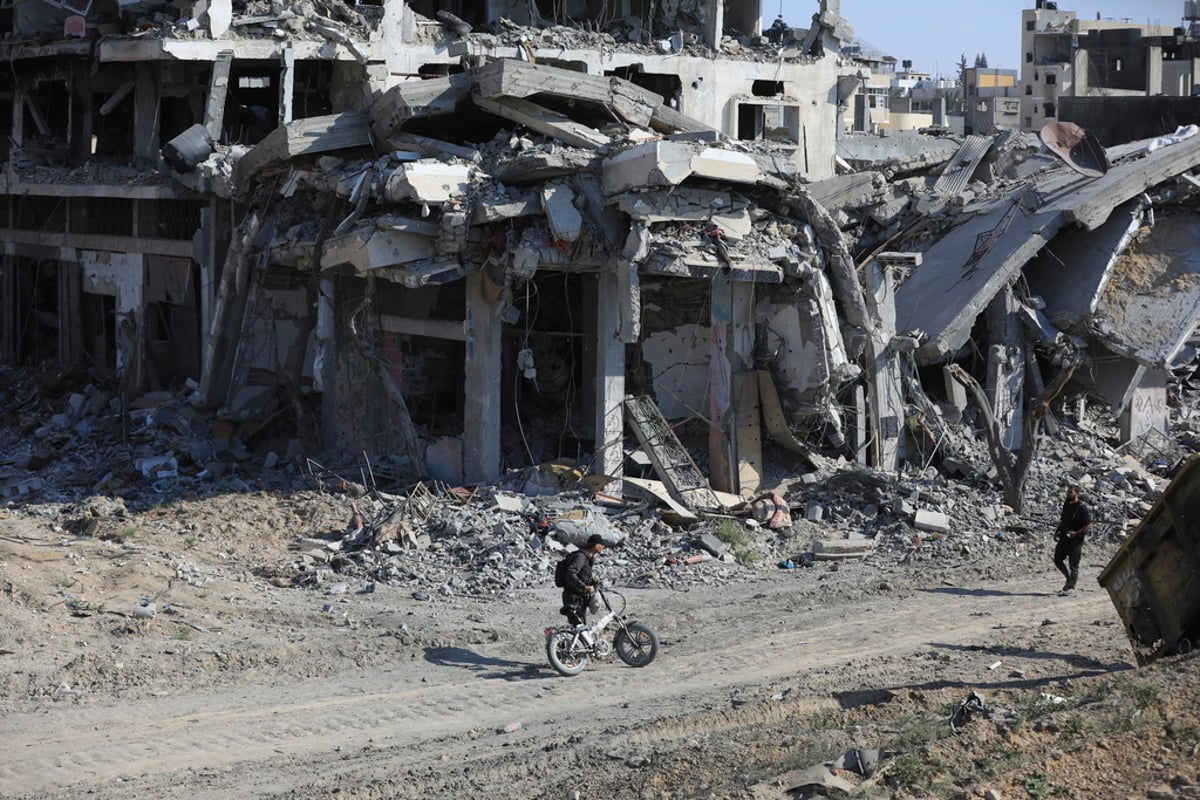Israel’s military quietly drew down troops in devastated northern Gaza earlier in the war. But it has continued to carry out airstrikes and raids in areas where it says Hamas has resurfaced, including Gaza’s largest hospital, Shifa, leaving what the head of the World Health Organization called “an empty shell.”The six-month mark has been met with growing frustration in Israel, where anti-government protests have swelled and anger is mounting over what some see as government inaction to help free about 130 remaining hostages, about a quarter of whom Israel says are dead. Hamas-led militants took about 250 captives when they crossed from Gaza into Israel on Oct. 7 and killed 1,200 people, mostly civilians.Several thousand protesters called for a “hostage deal now” at a rally outside the Knesset in Jerusalem, organized by hostages’ families. In southern Israel, weeping relatives gathered at the site of a music festival where more than 300 people were killed on Oct. 7.“It’s an impossible reality for us, it’s an impossible reality for the Gazans and the people of this country. We just want to live,” said one protester, Talia Ezrahi.“I would agree to anything to return the hostages and stop the mass killings in Gaza,” said another protester, Michal Fruchtman.Negotiations in pursuit of a cease-fire in exchange for the hostages’ release were expected to resume in Cairo on Sunday. An Israeli delegation led by the head of the Mossad intelligence agency was going to Cairo, according to an Israeli official who spoke on condition of anonymity because they were not authorized to discuss the matter with the media.Pressure rose for action now.“This doesn’t seem a war against terror. This doesn’t seem anymore a war about defending Israel. This really, at this point, seems it’s a war against humanity itself,” chef José Andrés told ABC, days after an Israeli airstrike killed seven of his World Central Kitchen colleagues in Gaza. Aid deliveries on a crucial new sea route to the territory were suspended.“Humanity has been all but abandoned” in Gaza, the International Federation of Red Cross and Red Crescent Societies said in a statement.The U.N. and partners now warn of “imminent famine” for more than 1 million people in Gaza as humanitarian workers urge Israel to loosen restrictions on the delivery of aid overland, the only way to meet soaring needs as some Palestinians forage for weeds to eat. Thousands of aid trucks have been waiting to enter Gaza.
Source link
Israel is pulling some troops from southern Gaza. Now the plan is to clear Hamas from Rafah





